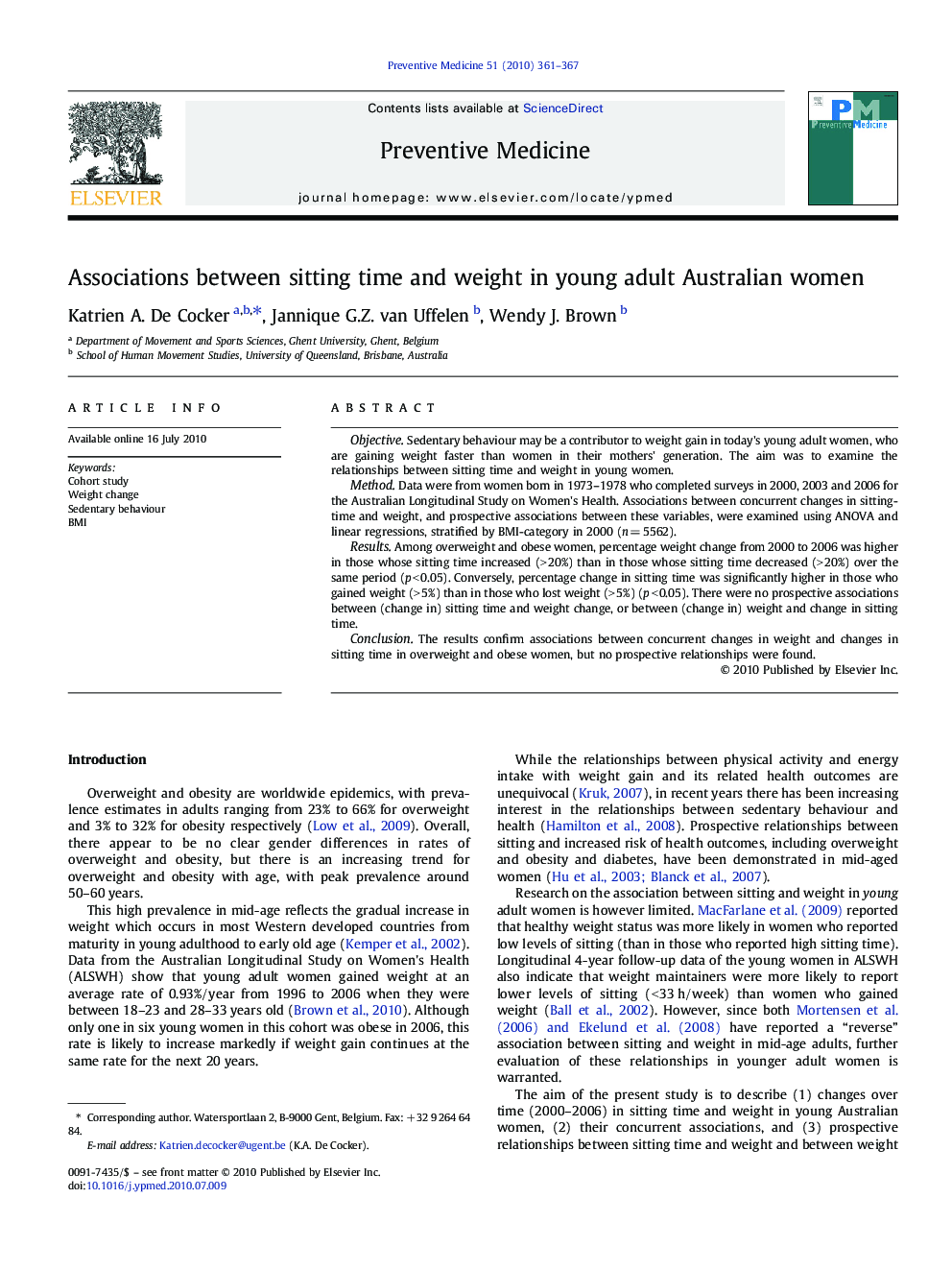| Article ID | Journal | Published Year | Pages | File Type |
|---|---|---|---|---|
| 3100876 | Preventive Medicine | 2010 | 7 Pages |
ObjectiveSedentary behaviour may be a contributor to weight gain in today's young adult women, who are gaining weight faster than women in their mothers' generation. The aim was to examine the relationships between sitting time and weight in young women.MethodData were from women born in 1973–1978 who completed surveys in 2000, 2003 and 2006 for the Australian Longitudinal Study on Women's Health. Associations between concurrent changes in sitting-time and weight, and prospective associations between these variables, were examined using ANOVA and linear regressions, stratified by BMI-category in 2000 (n = 5562).ResultsAmong overweight and obese women, percentage weight change from 2000 to 2006 was higher in those whose sitting time increased (> 20%) than in those whose sitting time decreased (> 20%) over the same period (p < 0.05). Conversely, percentage change in sitting time was significantly higher in those who gained weight (> 5%) than in those who lost weight (> 5%) (p < 0.05). There were no prospective associations between (change in) sitting time and weight change, or between (change in) weight and change in sitting time.ConclusionThe results confirm associations between concurrent changes in weight and changes in sitting time in overweight and obese women, but no prospective relationships were found.
